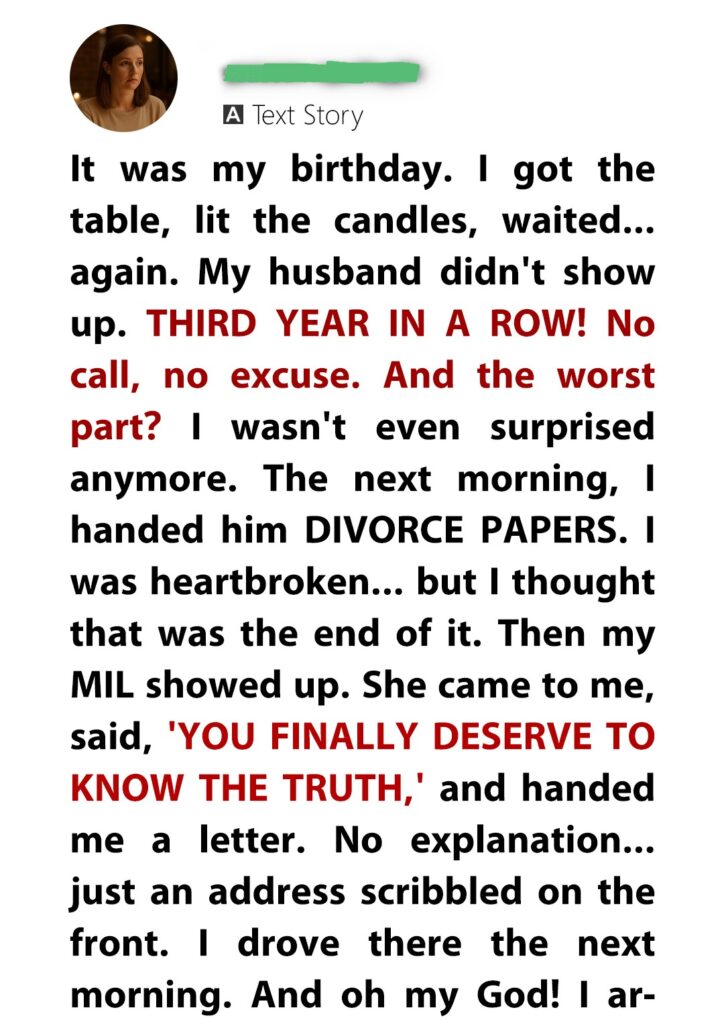For three years, I sat alone at the same restaurant table, waiting for my husband to show up on my birthday. Each time, he didn’t. Each time, he had an excuse—traffic, work, forgetfulness. And each time, I forgave him, hoping the next year would be different.
But on my third lonely birthday, something inside me broke. The flickering candle, the untouched seat across from me, the waiter’s sympathetic smile—it all felt like a cruel ritual. I left the restaurant with a decision: I was done waiting. That night, I told Mark it was over. He begged, stammered apologies, but I’d heard them all before. I filed for divorce the next day.
Weeks later, while packing up the remnants of our life together, I found a box tucked deep in his closet. Inside were birthday cards—three of them. Each one written to me, each dated on my birthday. But they were never sent. Alongside them were receipts for dinner reservations, gifts, even a necklace I’d once admired. Confused, I dug deeper.
That’s when I found the hospital records.
Mark had been undergoing treatment for a chronic illness he never told me about. Every year, around my birthday, his condition worsened. He didn’t want me to see him weak, didn’t want to ruin my day with hospital visits and worry. So he stayed away, thinking silence was kinder than truth.
I sat on the floor, surrounded by evidence of love I never knew existed. The missed birthdays weren’t neglect—they were sacrifice. He had tried, in his own broken way, to protect me from pain. But in doing so, he created a different kind of hurt.

I never got to tell him I understood. By the time I learned the truth, he had moved away, unreachable. But I carry the lesson with me: sometimes, the absence we resent hides a love we never recognized. And sometimes, the truth comes too late—but it still matters.


